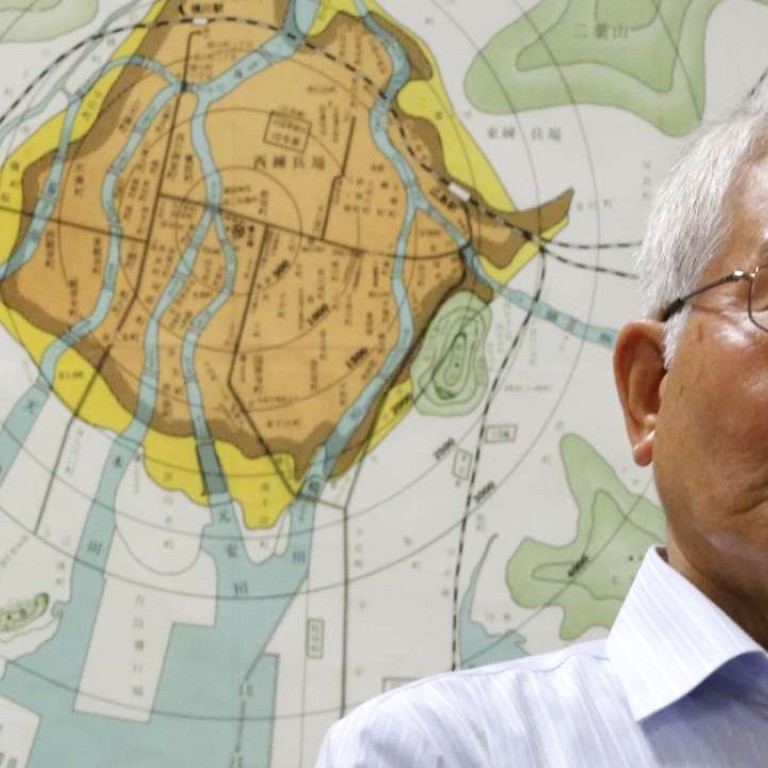
Hiroshima survivor: Obama should have come earlier
Hiroshi Shimizu was just three years old when the United States dropped the first-ever atomic bomb on his hometown seven decades ago. He can still describe it in vivid detail.
He and his mom had just come into their house from feeding rabbits in their yard on a clear morning when they saw a flash, heard a blast and the roof fell in.
Outside, as they tried to escape to an abandoned prison, there was a burning tornado of fire under a mushroom cloud of smoke as neighbours, friends, residents were killed and burned.
“Can you imagine people were in there?” Shimizu asked, through a translator. “Can you imagine how horrible, how hell-like that is?”
Shimizu, now 73, has been waiting nearly his whole life for a US president to come witness the horror caused on his city when the US dropped the bomb on Hiroshima on August 6, 1945.
It will happen on Friday when President Barack Obama becomes the first sitting US president to visit the city, whose downtown has been transformed into a symbol of the peace that could come in a world without nuclear weapons.
“I want President Obama to come and see and face … this is what America did 71 years ago,” he said. “I want him to see and feel and realise this is the result of dropping the bomb.”
The atomic bomb killed an estimated 140,000 people in Hiroshima. Three days later, a second atomic bomb killed up to 80,000 people in Nagasaki. The pair of bombings led to the surrender of Japan and the end of the second world war.
I want President Obama to come and see and face … this is what America did 71 years ago
Shimizu spoke to McClatchy in a lengthy interview, translated from Japanese, the day before Obama was set to arrive. He said he remembered details of the day of the bomb but years later, as his memory began to fail, he recited specifics from what his mother told him.
He serves as general secretary of the Hiroshima Confederation of A-Bomb Sufferers Organisation, which has been asking US officials to visit for three decades. Secretary of State John Kerry became the highest-ranking administration official to visit the site when he attended a memorial ceremony in Hiroshima in April.

“We have been asking American government, please come to Hiroshima, please come to Hiroshima, as soon as you can,” Shimizu said. “So obviously it’s very meaningful and very important.”
Obama, accompanied by Japanese Prime Minister Shinzo Abe, will visit the Hiroshima Peace Memorial, where he is expected to lay a wreath alongside three survivors and deliver brief remarks before flying home from a weeklong trip to Asia.
The visit comes seven years after Obama promised in a 2009 speech in Prague to take “concrete steps toward a world without nuclear weapons.” Shimizu, whose group advocates for a world free of nuclear weapons, thought Obama should have come after the speech.
“If he came to Hiroshima ... right after he finished the speech in Prague, I think that’s a bit different,” he said. “The president of the nuclear nation coming to Hiroshima is very very meaningful, but he should have come to Hiroshima right after the Prague speech and he should have applied his thought into American war policy or nuclear policy.”
Obama, who won the Nobel Peace Prize in part because of his desire to stop the spread of nuclear weapons, has outlined a series of steps toward disarmament. Critics have accused him of not going far enough in his goal, though some actions he could have taken required approval from reticent lawmakers and countries, including Russia.

In Hiroshima, many people say they are grateful that Obama is coming, and most say they aren’t bothered that it took this long – or that he isn’t going to apologise for what predecessor Harry S. Truman ordered.
But for Shimizu, it’s different. He wanted an apology, but never asked because then Obama might never have come. “He came to Hiroshima promising he won’t apologise,” he said. “If we ask him to come to Hiroshima to apologise, they will never make it to Hiroshima. That’s why we didn’t ask.”
Though he spoke about visiting Hiroshima in his first year in office, Obama waited until his last year to make the visit.
“Now his presidency is near the end, he doesn’t have any influence on political power, he doesn’t have any power anymore, so I think he wants to make a legacy by visiting Hiroshima because he doesn’t have any power in American policy,” he said.
Shimizu’s s father was working behind a counter in City Hall when the bomb dropped and died two months later of radiation. His 13-year-old brother had been away but suffered from radiation when he came back to Hiroshima to look for his family.
Shimizu said he suffered from a decade of various ailments, including nose bleeds and extreme painful diarrhoea common among survivors, but has been otherwise relatively physically healthy.
In the year after the bombing, as he would visit the hospital for checkups, he would see jars full of the babies who had been born with no brain, one eye or 10 fingers on a hand who did not survive. “Every time I go there, I silently talked to them,” he said. He said he struggled in his 20s with depression thinking he would die before he was 30 and eventually decided to never have children because he didn’t want them to get radiation.
“There are so many people feeling that if they were no bomb I wouldn’t have had this life,” he said. “I wouldn’t have suffered like this.”

